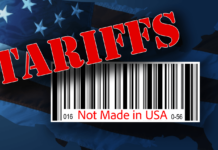The Truth Tracker continues its close look at A Better Financial Plan and its CEO, Dean Vagnozzi who proclaims he has a greater financial plan, “better than anything out there.” The firm’s advertisements vaguely describe multiple alternative investments that guarantee double-digit returns for their investors, with interest paid quarterly and the return of your principal investment after two years. A Better Financial Plan claimed that the enforcement order issued to them by the Pennsylvania Department of Banking and Securities was due to a large gray area in the law. At least, this is their explanation to ease the minds of their clients to continue to do business with the firm. In reality, if an agent is engaged in the sale of securities on behalf of someone else, as Vagnozzi was, the agent must be registered. Even if the company issuing the securities is exempt from registering, the agent must. To control the narrative, A Better Financial Plan gave a letter given to clients from their legal team stating that they preferred to settle the case with the Department and pay a fine instead of taking on expensive litigation costs. The truth of the matter is that Vagnozzi would have lost the case. Therefore, in order to mitigate the damage, Vagnozzi settled and tried to spin the story.
In an emailed statement from A Better Financial Plan’s legal counsel regarding the 2019 enforcement order, it was said that Vagnozzi was in the process of obtaining the proper credentials to become a broker, however, according to the Department of Banking and Securities, this is not true. They further misrepresented the truth as they described the actions that took place leading up to the enforcement order by stating the Department was alleging that Vagnozzi was acting as a broker. The official redacted 2019 enforcement order alleges that Vagnozzi, “effected transactions in securities in Pennsylvania while neither registered nor exempt from registration as an ‘agent’ in willful violation of Section 301(a) of the 1972 Act 70 P.S. §1-301(a).” While the state’s definition for agent and broker-dealer are relatively similar, the difference comes down to how the transactions were being affected and whether or not compensation was received for effecting the sale. In this case, Vagnozzi was effecting transitions on behalf of Par Funding and receiving compensation from them, thus classifying him as an agent. Therefore, there is no gray area in the department’s ruling and in an attempt to set the record straight, A Better Financial Plan’s legal counsel willfully mislead clients on the matter.
Nearly one year following the enforcement order, A Better Financial Plan has found a way to exploit the gray area of the law. If what Mr. Doe explained in part two of the Truth Tracker is true, then the investment pattern has changed and A Better Financial Plan, not Par Funding, would be considered the issuer according to the Pennsylvania Securities Act of 1972. An issuer is defined as, “any person who issues or proposes to issue any security, and any promoter who acts for an issuer proposed to be formed.” This is significant because it connects how both A Better Financial Plan and Par Funding are still doing business with Merchant Cash Advances while remaining in compliance with the Pennsylvania State security regulations. So while this updated investment pattern is legal, A Better Financial Plan has skirted the gray area to comply with the Pennsylvania Department of Banking and Securities.
To explain this process, the proposed investment pattern that took place before the enforcement order was issued must be analyzed. Prior to 2019, Par Funding issued non-negotiable, unregistered high-risk promissory notes to unregistered agents to be sold to investors on behalf of their company. Those funds were then used to lend Merchant Cash Advances to small businesses who would pay back the principal plus a high-interest payment. The payments from small businesses are generally derived from the business’s credit card sales as a way to ensure that the advance will be paid back in full plus interest. Additionally, the payments made by the small businesses would then be used to pay the monthly or annual payments on the client’s unregistered high-risk promissory notes – which were being sold by the agents working on behalf of Par Funding. Since Vagnozzi was not a properly registered agent to effect these transactions on behalf of Par Funding and received a commission from his sale of non-negotiable unregistered high-risk promissory notes, he was ordered to pay a fine. A fine that he would not have been able to litigate in court because he was in violation of the state’s security regulations.
This new process, as described by Mr. Doe, places A Better Financial Plan as the instigator of the post-enforcement proposed investment pattern. To avoid violating the regulations, A Better Financial Plan began issuing the unregistered high-risk promissory note securities and working around the registration requirements by filing Form D with the Securities and Exchange Commission. A Better Financial Plan issues these unregistered high-risk promissory notes through different investment funds registered with the SEC for Merchant Cash Advances. That investment money is then lent to an alternative lender – Par Funding who was also named in the 2019 enforcement order with Vagnozzi and A Better Financial Plan. Mr. Doe did make mention that Par Funding did sound familiar and that it was likely that they are still working with A Better Financial Plan.
After the money is invested, it is lent to Par Funding, which contracts small businesses in need of cash advances at an interest upwards of 35% or more. The small businesses pay back the principal and interest on those advances and the funds travel back through Par Funding to A Better Financial Plan and then each investor’s monthly interest payments are directly deposited into a bank account of their choice.
According to Doe in part two of the Truth Tracker, this investment pattern guarantees the annual returns of 10%, 12%, or 14%. Since A Better Financial Plan filed an exemption with the SEC to file Form D, they are exempt from registering their securities – in this case, unregistered high-risk promissory notes – with the State of Pennsylvania. In the same respect, because this exemption is filed, A Better Financial Plan does not have to be registered as an issuer of securities with the Pennsylvania Department of Banking and Securities. Finally, Par Funding is not acting as an agent on behalf of A Better Financial Plan and does not need to be registered as an agent, nor do they need a license to engage in Merchant Cash Advances. Since the advances are not considered loans, no federal or state oversight is required.
While the Pennsylvania Department of Banking and Securities has declined to comment on the proposed investment pattern, there is reasonable evidence to suggest that this is how A Better Financial Plan is issuing securities for the purpose of Merchant Cash Advances. It is also reasonable to assert that the other investment funds incorporated by A Better Financial Plan operate in a similar fashion. Based on literature acquired from Mr. Doe, the investment fund that was set up for Litigation Funding operates very similarly to that of the Merchant Cash Advances.
Investment opportunities are aplenty in the Philadelphia financial market. From putting investors money at risk on the stock market to investing in safe alternatives, there is no shortage of firms or investments for consumers. While investments in Merchant Cash Advances are legal, the business practices of A Better Financial Plan issuing unregistered high-risk promissory notes are not transparent. Referring back to part two of the Truth Tracker, John Doe received nothing in the form of physical paperwork regarding his investment. Further, Doe stated that when he requested to see a copy of the policy that protects his contract, he was denied. Rather, he was told to come into the office if he wanted to read the policy. His contract does not list who manages the investment, how the investment accrues its monthly interest payments, nor what the investment is for – the contract does not mention Merchant Cash Advances. The only information contained in Doe’s contract is that he invested a principal sum of money for a guaranteed 10% annual return after one year. As far as the purpose of his investment, this was all disclosed by an advisor through the use of PowerPoint. Considering Doe received no physical paperwork that would document the aforementioned information raises significant red flags about transparency and credibility.
In the end, while Vagnozzi claims he is the most ethical guy in the business, the truth is that he skirts around securities regulations and lacks transparency as an investment professional. He has denied clients access to information regarding their own investments, purposely misled clients concerning the 2019 enforcement order, and provides no physical paperwork that would educate or inform their clients about what they are investing in. Merchant Cash Advances are an unregulated high-risk alternative to the stock market, and for that reason, alternative investments such as Merchant Cash Advances should result in increased transparency during the investing process, not less. Misinformation not only hurts the image of A Better Financial Plan but significantly disadvantages their investors and puts them at risk. While A Better Financial Plan is technically within the bounds of the law and regulations, transparency is a real issue for the firm.












